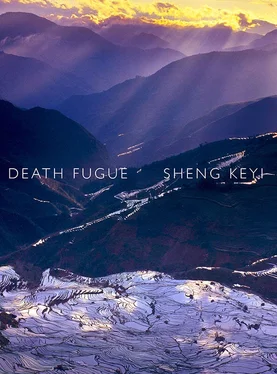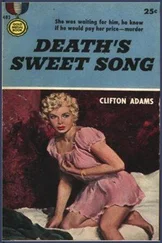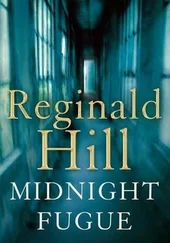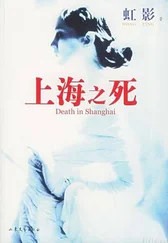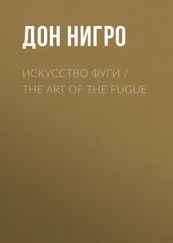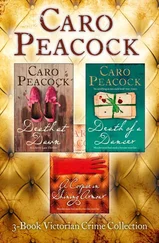‘Maybe he’s not even sure himself.’
‘Well, if he doesn’t care for my feelings, I’m certainly not going to be the one to let things go. He thinks he’s the king, a monarch who can bestow favours on whomever he pleases, a little here and a little there, so everyone will be happy and will remain loyal to him without any will of their own.’
Does this mean Suitang is one of those women who loves revolution? Mengliu thought. But to Suitang he only said, ‘In times of revolution, one must revolt. The rebel has no choice but to rebel. But what will you use in your revolution? What sort of bargaining chip do you have? If his marriage is solid, then your attempts to break it will be like throwing eggs against a rock. Haven’t you had enough of such teachings?’
‘You mean all I can do is be led around by the nose? I’m a human, you know!’ Suitang looked just then like a human-rights crusader.
‘That’s right, you are human, but if you threaten his security, his benefits, his happiness, he’ll have no choice but to cut you off, and wash his hands of you.’
‘So now you’re speaking up for him? You men, you always look out for each other’s interests.’
‘To tell the truth, I’ve never been married and I don’t know how married men think. But I do know that whether a person does good or bad…either way, it’s natural and normal.’
‘Mengliu, do you think you’re here to give me a lecture me about the Confucian Golden Mean? You’ve got no middle ground, only vul…vulgarity, no moral standing, no character. Surely you’ve been in love before.’
Suitang’s words were sharp as a sword. Overwhelmed, Mengliu paused for a moment, slumped back in his chair, and said weakly, ‘Of course. I’ve been in love. And I’ve been hurt. Heartbroken.’
When he had finished, he straightened up again and took a sip of wine to wet his throat, as if he was preparing to let the whole story spill out.
Suitang’s brow tightened. She stared at him strangely, as if a horn had sprouted from his forehead.
‘Go on,’ she said, stealing another glance at him.
‘With what?’
‘Your love story.’
‘Even if I go on, you won’t understand.’
‘You’re so self-righteous. But, if Jia Wan hadn’t overtaken you, maybe…Suitang’s tone was as casual as if she were polishing a nail, and just as casually, she unwrapped a piece of chewing gum and shoved it into her mouth.
‘Jia Wan…? That celebrity?’
Of course Mengliu was familiar with Jia Wan. In the year of the Tower Incident, just as spring turned to summer, the atmosphere had been tense as a guitar string. It took very little in such a charged setting to trigger an incident. Summer came early, withering the new leaves and buds, which were growing together on the same tree. At that time, there were poetry readings everywhere, with a major event happening every few days. The double-tracked wall at the Wisdom Bureau often attracted a crowd. On the trees, the wall, the iron railing — practically even hanging from the roofs — there were people everywhere you looked. As they recited Neruda, Miłosz, Whitman, Tagore, Jia Wan often made an appearance as well.
‘Doctors are always getting involved with patients. How much do you know about him?’ Mengliu asked.
‘I have an in-depth understanding.’ She emphasised the word ‘in-depth.’
‘Strictly speaking, Jia Wan is not a poet.’
‘You’re just jealous.’
Mengliu did not say anything. He had never liked Jia Wan’s poetry, and he liked the person even less.
‘Of course, he couldn’t compete with any of you. I’ve collected the poems of the Three Musketeers from the newspapers, and I’ve listened to your readings. Your poetry is like Whitman’s…or was . Why did you stop writing poetry?’ Suitang let him off.
‘Whitman? Times have changed.’
‘“One’s-self I sing — a simple, separate Person; Yet utter the word Democratic, the word En-masse. ”’ She recited a few lines. ‘Poetry will not hinder your life. When I chose to be your assistant, it was because I liked your poetry. It’s a shame. If you don’t write poetry anymore, don’t you feel it’s a waste?’
As she spoke, she smiled sweetly and tilted her head. The red hairpin flashed, catching the light’s glare, and suddenly it was as if the sky was on fire. There was gunfire, fighting, killing, blood, tank-tracks rolling, and smoke.
Suitang smiled through the bloody scene. In consternation, Mengliu sat without making a sound. His expression resembled Round Square after it had been washed clean, and was suffused with a moist sheen of sorrow.
Driven by complex emotional forces, Mengliu left the Wisdom Bureau, went to medical school, and became a doctor. He intentionally distanced himself from his old acquaintances, and soon lost contact with them. After that, he didn’t form any new relationships. Patients, on the other hand, he had in abundance. They trusted him. In times of illness, patients and their families tried to curry favour with him. Their enthusiasm was often rewarded with a cure. Mengliu grew accustomed to the life. Occasionally someone would report him, accuse him of having a bad lifestyle. They especially questioned his past, pointing to some hidden errant political activity. Of course, that was all a load of rubbish. Even when they tried to get to the bottom of it, other than finding out that he had been quite a good poet, no one could come up with any kind of evidence.
All the same, he realised finally that sometimes you had to sell your soul to maintain your innocence. Being ‘without incident’ didn’t mean he hadn’t had any pleasure or glory. He’d even endured some suffering. His leather-covered diary contained this entry: ‘I think that there is no such thing as a healthy person. The heartbeat of one person may thump in the chest of another. Some only have half a liver or one kidney. Some people are without uterus or breasts. Some are bald. Most have no conscience, and many are utterly wicked. The lungs of even the most upright person may be coated with oil like a kitchen hob…Even so, they will not, for the sake of some gain, give up the fight. They want to dominate others, they want love and sex, they want to take control of their lives and seem normal. I include myself in this. I’m a coward, just dragging out an ignoble existence, a louse lying on the gigantic body of the nation.’
Sandwiched between the pages of his diary was a photo of the Three Musketeers. In the picture, Bai Qiu’s arms were crossed over his chest, the very image of an independent, eccentric spirit, with a sort of uncertain, confused look in his eyes. A renowned literary critic once said of Bai Qiu’s poems that he heard a trumpet sounding in his lines, which was perhaps the most poetic appraisal that could be made of them at that time. Bai Qiu had an innate fascination with the grave, and his poetry was full of death, corpses, skulls and other such imagery. For him, death was not something that came by chance.
On the afternoon of the dissolution of the Dayang Poets’ Society, all five or six of its members slunk off to the Green Flower to drink in the gloom. Up until then Bai Qiu’s poetry had merely served as criticism or warning, and it had not been appropriated by people who operated with ulterior motives. Now it was all completely banned — though the word ‘banned’ may be too politically charged. To put it more precisely, no media source would publish his work. The editors stammered and stuttered, dodging behind various pretexts. Even those intellectuals who had previously valued Bai Qiu’s poetry quite highly now began to have reservations.
‘Hey, Boss, I’ve come to recite some poetry. Can you send a jug of wine over?’ Bai Qiu said to the proprietor, as if nothing were out of the ordinary. He took a slim little notebook from his pocket. In it were three poems he had just composed. It was exciting then to listen to a poet recite his work, and many in the audience counted it an honour to have their photos taken with him. Poets were like movie stars. If a poet tried to board a train without a ticket, the conductor was likely to let it pass in exchange for an autograph. He would even try to arrange a comfortable seat for him, free of charge.
Читать дальше
